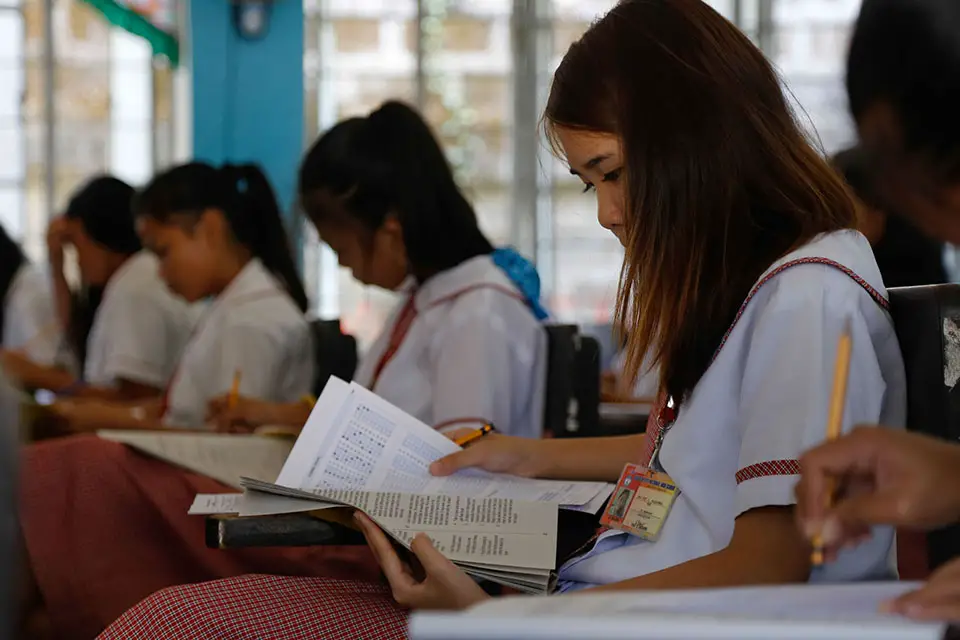College level education is considered to be the final form of education. Although after an undergraduate degree, learners can still get either a doctorate or a master’s degree, finishing the college level is sufficient for you to land on a decent job. Have you ever noticed the fact that basic Filipino Panitikan is taught even in college level perspective? Have you heard of the discussions on removing Filipino Panitikan in the basic curricula?

Debate has been rolling out about Filipino Panitikan or literature being an important ingredient in the lessons and curriculum of college students. Just recently, however, the Supreme Court (SC) ruled out that it can be not included in college’s core subjects.
Read: Senior High School Voucher Program of DepEd Opens Today, May 26, 2019
Supreme Court finalizing Filipino Panitikan’s exclusion
During the SC en Banc, the Supreme Court held its decision way back last 9th of October, 2019—this was included in their five (5) page resolution. It was after the petitioners failed to present new arguments that could have been a decision-changing move for the justices.
Supreme Court clerk Edgar Aricheta said that because of the fact that no entry was submitted, they won’t be entertained.”
Last October, the SC had the rule that the memorandum of the Commission on Higher Education (CHED) that decreases the general education (GE) curriculum to thirty-six (36) units minimum was valid. More so, CHED’s memorandum order no. 20 series of 2013 was short with the provision compliance when it erased the study in the GE at tertiary level.
The Alyansa ng Mga Tagapgtanggol ng Wikang Filipino, an organization who aims to preserve the Filipino language and culture, made claims that our country’s Constitution mandates and orders the inculcate the study of the Filipino and its Constitution in all levels’ curriculum.
Read: Bill of Mandatory ROTC for Grade 11 and 12 Students, OK-ed by the House
Ma. Dolores Brillantes, another petitioner of the bill, said that adding approximately two (2) years of Senior High School (SHS) is oppressive and erratic because it does not comply to the students of Science High School’s needs—which have higher and better mental capabilities.
The justice’s point
As per the Justice, since the inclusion of the Filipino and Panitikan is still being looked at, the subject should still be included in the curriculum of educational institutions—not just schools but tutors as well.
The mandate was general and did not specify the educational level in which it must be taught. CHED MO 20 (CMO 20) did not violate the Constitution when it merely transferred these subjects as part of the curriculum of primary and secondary education.”
In addition to that, the CHED MO no. 20 only accounts for the minimum standards for the General Education (GE) component of all other degree programs.
The Supreme Court (SC) said that this act does not really put a cap to the freedom (academically) of some colleges and universities.
Read: High School Graduates Can Now Apply as a Flight Attendant
It does not limit the academic freedom of universities and colleges to require additional courses in Filipino, Panitikan and the Constitution in their respective curricula.”
The K to 12 law intends to promote and endorse the public’s interest, not only that of a particular class of society. In fact, it will be irrelevant for the petitioners to think in advance that the K to 12 law doesn’t provide students with the best interest.
It is also erroneous for petitioners to assume that the K-12 law does not serve the interest of the students of science high schools. In fact, the K-12 law explicitly recognized the right of schools to modify their curricula subject, of course, to the minimum standards prescribed by (the Department of Education). The K-12 (Implementing Rules and Regulations) further confirmed the inclusiveness of the design of the K-12 Basic Education Curriculum by mandating the inclusion of programs for the gifted and talented and allowing acceleration of learners in public and private educational institutions.”
What do you think about the plan of eradicating Filipino Panitikan from General Education and from college level curriculum? Would it have drastic impact to how education is? Or would it be better for other learning programs to penetrate the college level?

